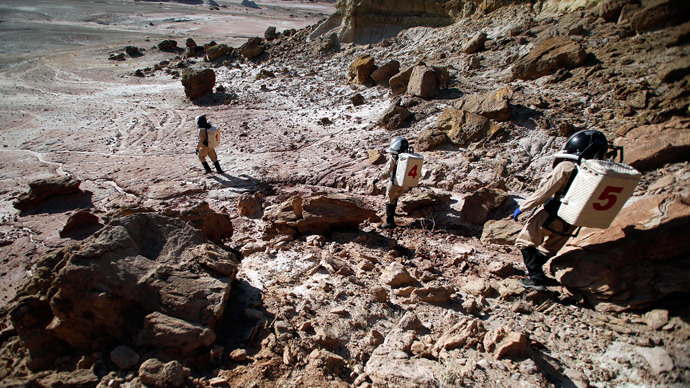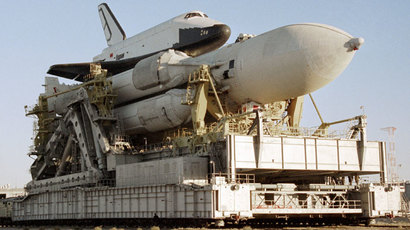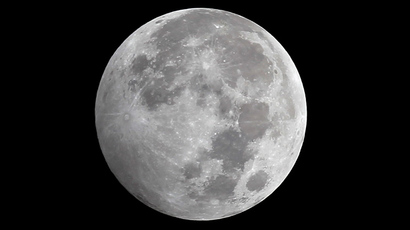Russia will begin Moon colonization in 2030 - draft space program

“We are going to the Moon forever,” the Russian Deputy PM said in April, and it was not just empty words. It appears Russia does plan to colonize the Moon by 2030 and the first stage of the ambitious project may start as soon as two years from now.
That is according to a leaked draft document that Izvestia newspaper claims to have obtained. It was prepared by the Russian Academy of Sciences, the Roscosmos federal space agency, Moscow State University and a number of space research institutes.
“Moon is a space object of the future reclamation by Earth civilization, and in XXI century there might be a geopolitical competition for lunar natural resources,” the authors of the draft project state in the opening line.
This is why it is important to focus on creating an arsenal of necessary means in advance, they stress.
“The Moon is not an intermediate point in the race,” Russia’s Deputy PM Dmitry Rogozin who is in charge of space and defence industries said back in April. “This process has the beginning, but has no end. We are going to the moon forever.”
The Concept of Russian Lunar Program, as it is titled according to the paper, outlines a three-step plan toward manning the moon.
The first stage is planned to start in 2016 and last until 2025. This is when Russia, should everything go well, will send four automated rovers to the moon Luna-25, Luna-26, Luna-27 and Luna-28.
As the document states, earlier Soviet and American lunar expeditions established that the Moon contains aluminum, iron, titan, and many other useful elements. Scientist think it will be possible to mine some of the Moon's natural resources for terrestrial use.
The first lunar bases will be built in the vicinity of moon's poles, authors assume, because they are the areas of tangential lighting which means the polar mountains will be the “areas of continuous lighting” while the plains will be in shadow.
The task of the first stage of the Russian Moon program would be to conduct tests into the physical and chemical properties of lunar polar regolith and water content as well as to scope out the South Pole in order to find the best mineral rich spot for a future deployment of a lunar base.
The second stage of exploration, planned between 2029-30, envisions sending manned missions to the moon's orbit. The researchers however are not planning landings on the lunar surface at that stage. For this stage the Russian Rocket Space Corporation Energiya is developing a heavy piloted cargo spaceship.
The expeditions planned for a third stage between 2030-2040 include a visit by cosmonauts to the selected site on the Moon surface to survey the area and set up the initial elements of the base’s infrastructure. At this stage the construction of a space and Earth monitoring observatory on the Moon will also begin, according to the plan.
The cost for the first stage of the mission is expected to be around 28.5 billion rubles ($815.8 million). Russia would hope to attract private investors to help finance the project, the report said, as it will need to finance the building of the spaceship that according to 2012 estimates would add 160 billion rubles ($4.5 billion)
But while potentially wanting to enlist foreign sponsors, the authors of the project stresses that the “independence of the national lunar program must be ensured regardless of the conditions and the extent of the participation in it by foreign partners.”
Roscosmos told Izvestia that the draft proposals to the Federal space program will undergo a comprehensive expert examination before the project is submitted to the government.














